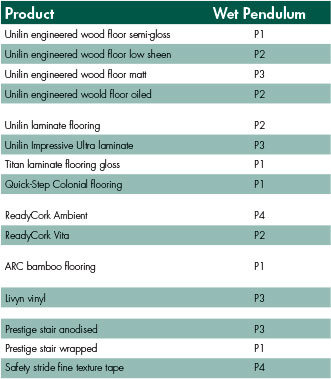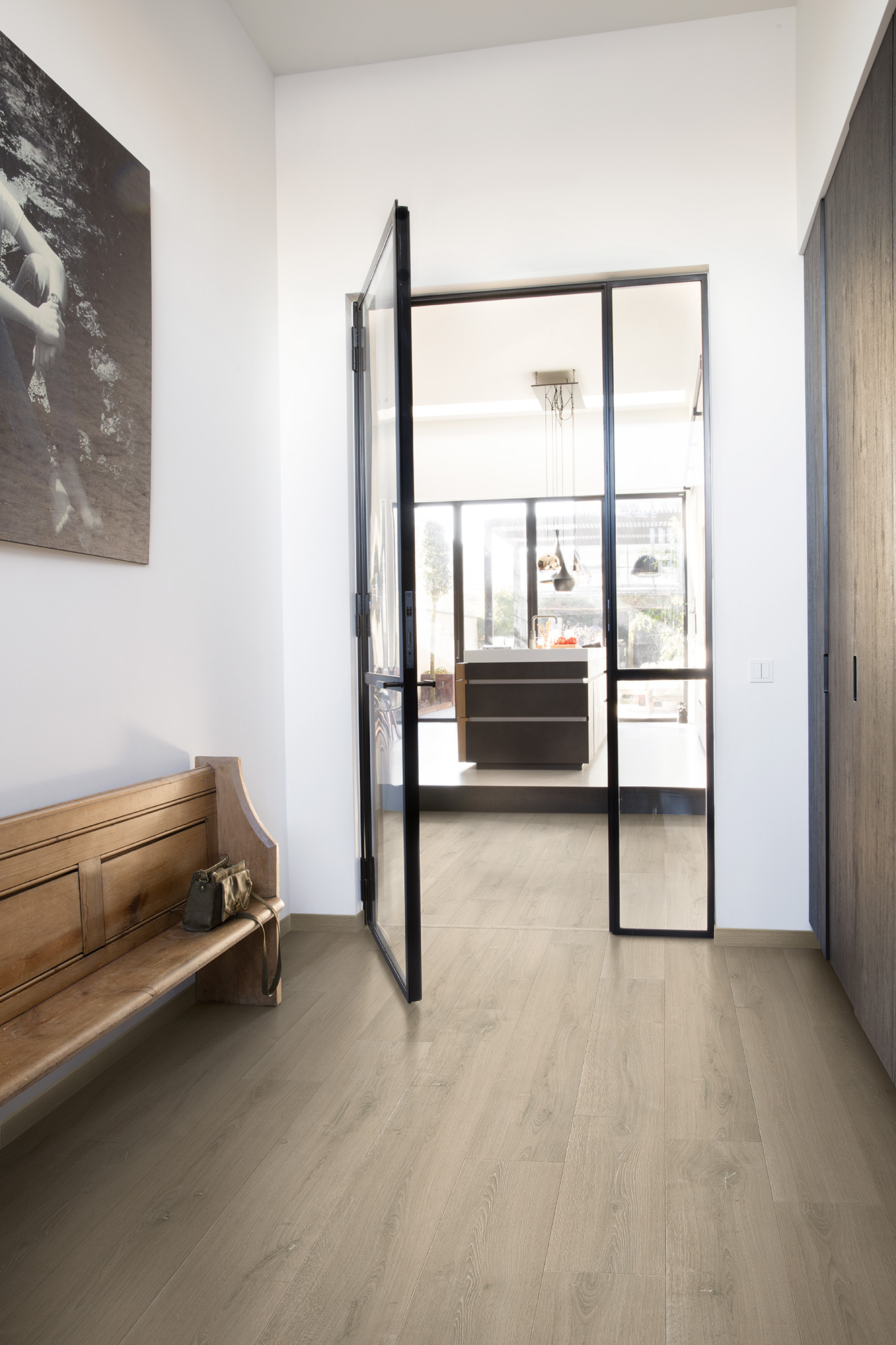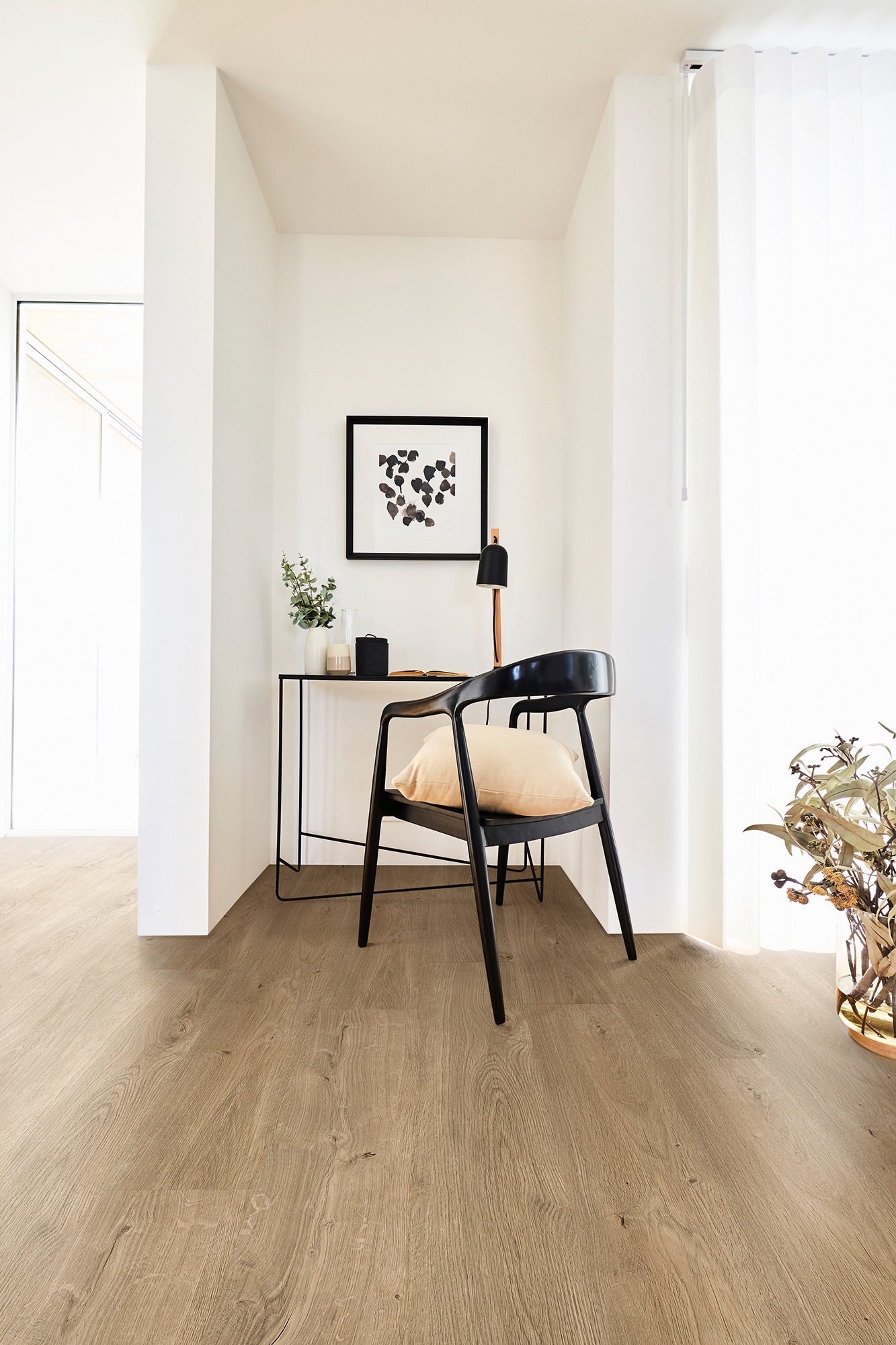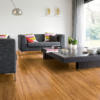Technical Hub Slip Resistance
Slip testing and results for all Floorscape products are performed in accordance with the Australian Standard AS4586, and in line with the relevant Hand Book HB198:2014. All products are tested using the Wet Pendulum method, as prescribed in the standard. This method is universal, quick to perform, and mobile, so results can be easily compared, and tests can be performed on site if necessary.
Laminate slip resistance certificates
- Slip resistance QS Laminate Classic & Eligna Download
- Slip resistance QS Laminate Impressive Classic Oak & Soft Oak Download
- Slip resistance QS Laminate Impressive Saw Cut Oak Download
- Slip resistance QS Laminate Majestic Desert Oak & Valley Oak Download
- Slip resistance QS Laminate Majestic Woodland Oak, Spotted Gum & Blackbutt Download
- Slip resistance QS Laminate Perspective Nature Brushed Oak Download
- Slip resistance QS Laminate Perspective Nature Merbau Download
- Slip resistance QS Laminate Perspective Nature Painted Oak Download
- Slip resistance QS Laminate Perspective Nature Patina Oak Download
- Slip resistance QS Laminate Perspective Nature Soft Patina Oak Download
- Slip resistance QS Laminate Perspective Nature Waxed Oak Brown Download
- Slip resistance QS Laminate Perspective Nature Natural Varnished Oak Download
- Slip resistance QS Laminate Impressive White Varnished Oak Download
- Slip resistance Quick-Step Laminate Muse Download
- Slip resistance Pergo Laminate Arendal Moorland and Barnhouse Oak Download
- Slip resistance Pergo Laminate Arendal Island and Tundra Oak Download
- Slip resistance Pergo Laminate Arendal Meadow, Vintage Grey and Estate Oak Download
- Slip resistance Pergo Laminate Arendal North Cape, Skagen and Stockholm Download
- Slip resistance Pergo Laminate Odense Solstice, Glacier and Beaufort Oak Download
- Slip resistance Pergo Laminate Odense Rustic Smoke Download
- Slip resistance Pergo Laminate Odense Dusk, Vibrant and Clouded Oak Download
- Slip resistance Pergo Laminate Odense Clay, Oatmeal and Malt Oak Download
Timber slip resistance certificates
Hybrid & Vinyl slip resistance certificates
Other slip resistance certificates
Slip Resistance
Slip testing and results for all Floorscape products are performed in accordance with the Australian Standard AS4586, and in line with the relevant Hand Book HB198:2014. All products are tested using the Wet Pendulum method, as prescribed in the standard. This method is universal, quick to perform, and mobile, so results can be easily compared, and tests can be performed on site if necessary.
The test results in a “P” number which is referenced in the Hand Book and Building Code of Australia (BCA). The higher the P number the more slip resistant is the surface. This system is used in preference to the Wet Ramp method (R rating) due to its relevance and ease, and International acceptance. All test are performed by a certified 3rd party body, and a Certificate produced for each type of product.
The test results are affected by the surface texture and gloss level of the product being tested, as such, multiple Certificates may be provided within a single product category to reflect the different surface specifications of these products eg: Semi-Gloss vs Matt Lacquer.
Table A – slip resistance
The flooring is always tested wet, it is assumed that the performance of dry flooring will be superior. In general, a P3 result is considered suitable for most commercial and domestic applications. Table A is a summary of test results for our flooring products, including stair nosing’s. Table B is an excerpt from the BCA providing a basic overview of slip performance requirements in different areas.
Please be aware that the BCA requires all dry internal stair treads or nosing’s to achieve a P3 rating or higher as per this excerpt from the BCA in table C.
When P1 or P2 flooring is used on stairs, a P3 nosing should be used, or alternatively the stair nose treated with Safety Stride non-slip tape (Fine Textured Resilient Clear), which achieves a P4 rating.





